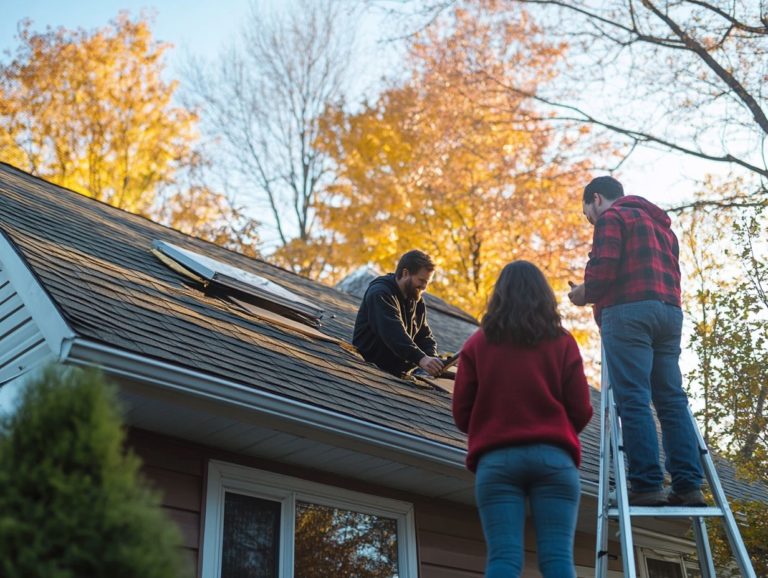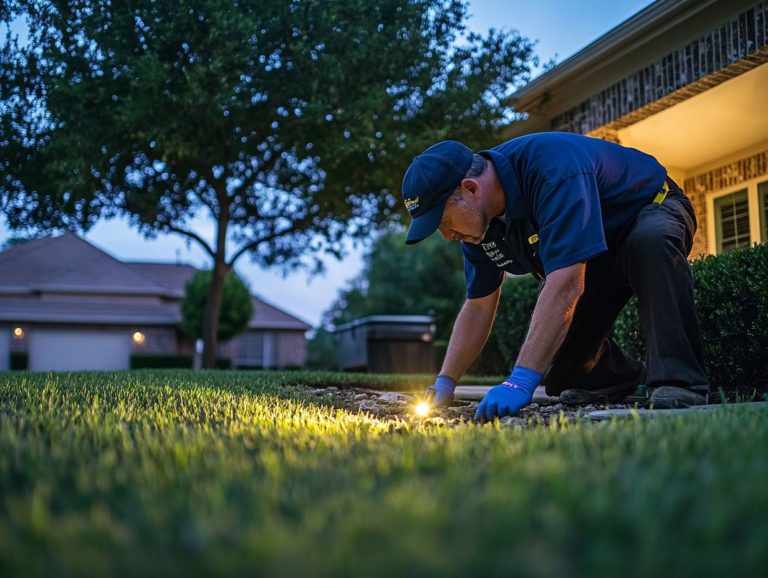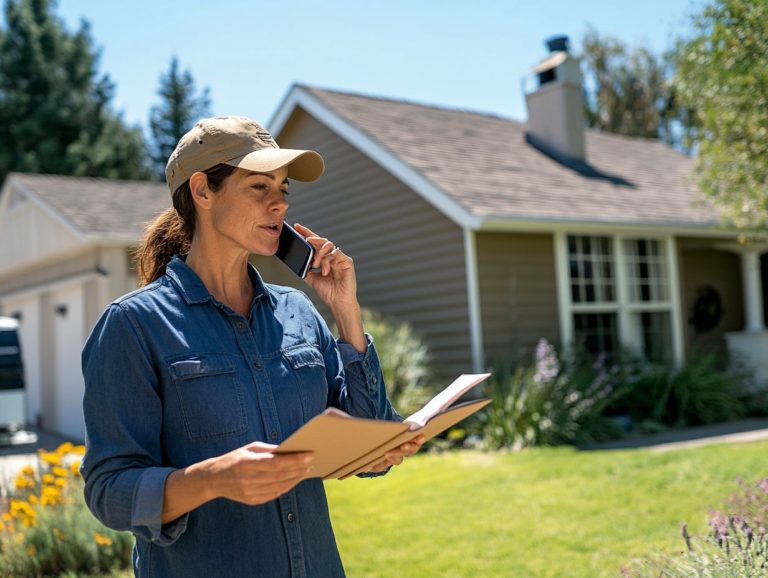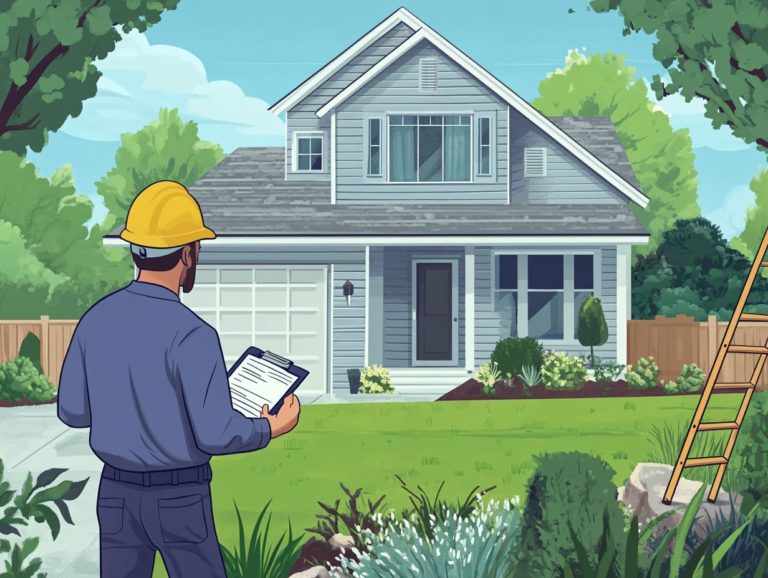5 Essential Questions for Home Inspectors
Buying or selling a home can feel overwhelming, and grasping the intricacies of a home inspection is vital for making informed choices.
This article delves into five key questions, covering everything from what a home inspection entails to the typical duration of the process. It also examines common issues that arise, negotiation strategies, and how to choose a qualified inspector.
With insights into red flags and various inspection types, you’ll be ready to tackle your home buying or selling journey with confidence and clarity.
Contents
- Key Takeaways:
- 1. What Does a Home Inspection Include?
- 2. How Long Does a Home Inspection Take?
- 3. What Are the Most Common Issues Found During a Home Inspection?
- 4. Can a Home Inspection Be Negotiated?
- 5. How Do I Choose a Qualified Home Inspector?
- What Should I Look for in a Home Inspection Report?
- What Are the Different Types of Home Inspections?
- Frequently Asked Questions
- What are the 5 essential questions that home inspectors should ask during a home inspection?
- Why is it important for home inspectors to ask these specific questions?
- What are some common red flags that home inspectors should look out for?
- How can home inspectors ensure they are providing comprehensive reports for their clients?
- What should home inspectors do if they uncover a major issue during the inspection?
- How often should a home inspection be performed?
Key Takeaways:
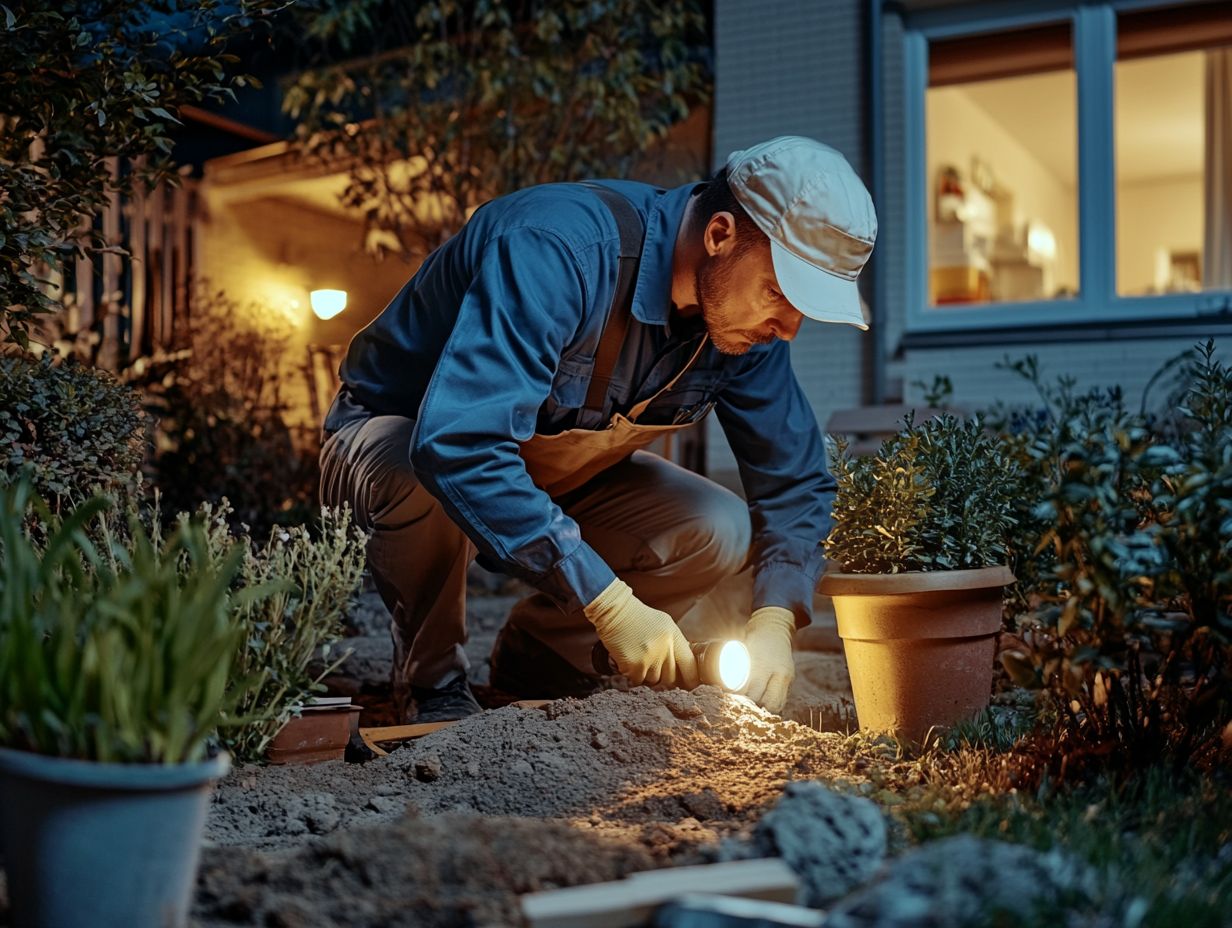
A home inspection covers the structural, mechanical, and aesthetic aspects of a property.
The length of a home inspection can vary but typically takes 2-3 hours.
Common issues found during home inspections include electrical, plumbing, and roofing problems.
1. What Does a Home Inspection Include?
A comprehensive home inspection is an essential part of your home-buying journey, offering you an in-depth understanding of the property’s condition and key features. This helps you understand the property’s condition before you commit financially.
Typically, this process encompasses a thorough examination of major systems, including roofing, plumbing, and electrical, as well as an assessment of the foundation and overall structural integrity. This examination helps you identify any major issues or minor concerns that could impact the property’s value and safety.
Your inspection checklist will cover numerous vital elements, such as:
- windows
- doors
- insulation
- heating, ventilation, and air conditioning (HVAC) systems
All of these play a crucial role in the livability of your future home. Common problems that might come to light during an inspection can range from minor repairs, like leaky faucets, to significant concerns, such as roof damage or faulty wiring. To understand what to look for, consider the 5 key components of effective home inspections.
The findings from this inspection are compiled into a detailed report that becomes invaluable for you. It highlights areas requiring immediate attention or future investment, serving as a powerful tool in your negotiations for repairs or price adjustments.
Ultimately, this report gives you the power to make informed decisions regarding your home investment, enhancing your confidence in the purchase.
2. How Long Does a Home Inspection Take?
The duration of a home inspection can vary significantly based on several factors, including the size of the property, the multitude of features to examine, and the thoroughness of the inspector. Typically, you can expect the process to take anywhere from two to four hours for an average home.
For larger properties, more time is naturally required due to the increased number of rooms and systems needing careful examination. The complexity of the home’s plumbing and electrical systems is another critical factor; intricate setups demand additional scrutiny, which can extend the inspection period.
The inspector s experience and expertise can also influence the duration of the process sometimes speeding it up, while other times adding to the timeline. While a comprehensive inspection may take longer, this in-depth analysis ultimately equips you with valuable insights into the property’s condition, ensuring you are well-informed before making such a significant investment.
3. What Are the Most Common Issues Found During a Home Inspection?
During a home inspection, you’ll often encounter a range of common issues, from minor cosmetic flaws to major concerns involving critical systems like plumbing, roofing, and electrical components. To navigate these effectively, consider following 5 tips for a productive home inspection, as these can significantly impact both home safety and property value.
Common problems can be categorized into major and minor concerns, affecting not just your immediate livability but also your long-term financial stability.
Major issues, such as roof leaks, can lead to extensive water damage and mold growth, resulting in costly repairs that may not be immediately evident. Similarly, outdated electrical wiring can pose serious safety hazards, increasing the risk of fire or unexpected power outages.
On the flip side, minor concerns typically involve aesthetic imperfections think chipped paint or scratched floors. While these may feel less urgent, neglecting them can lead to more significant problems down the road.
Consider plumbing issues like dripping faucets or slow drains; they might seem trivial, but over time, they can result in hidden leaks and inflated water bills, adding up to expenses that easily slip under your radar.
Properly addressing both minor and major concerns is essential in home maintenance, ultimately influencing potential repair costs that could arise in the future.
- Addressing both minor and major concerns can save you money in the long run.
Don’t wait! Schedule your home inspection today to uncover the true condition of your future home.
4. Can a Home Inspection Be Negotiated?
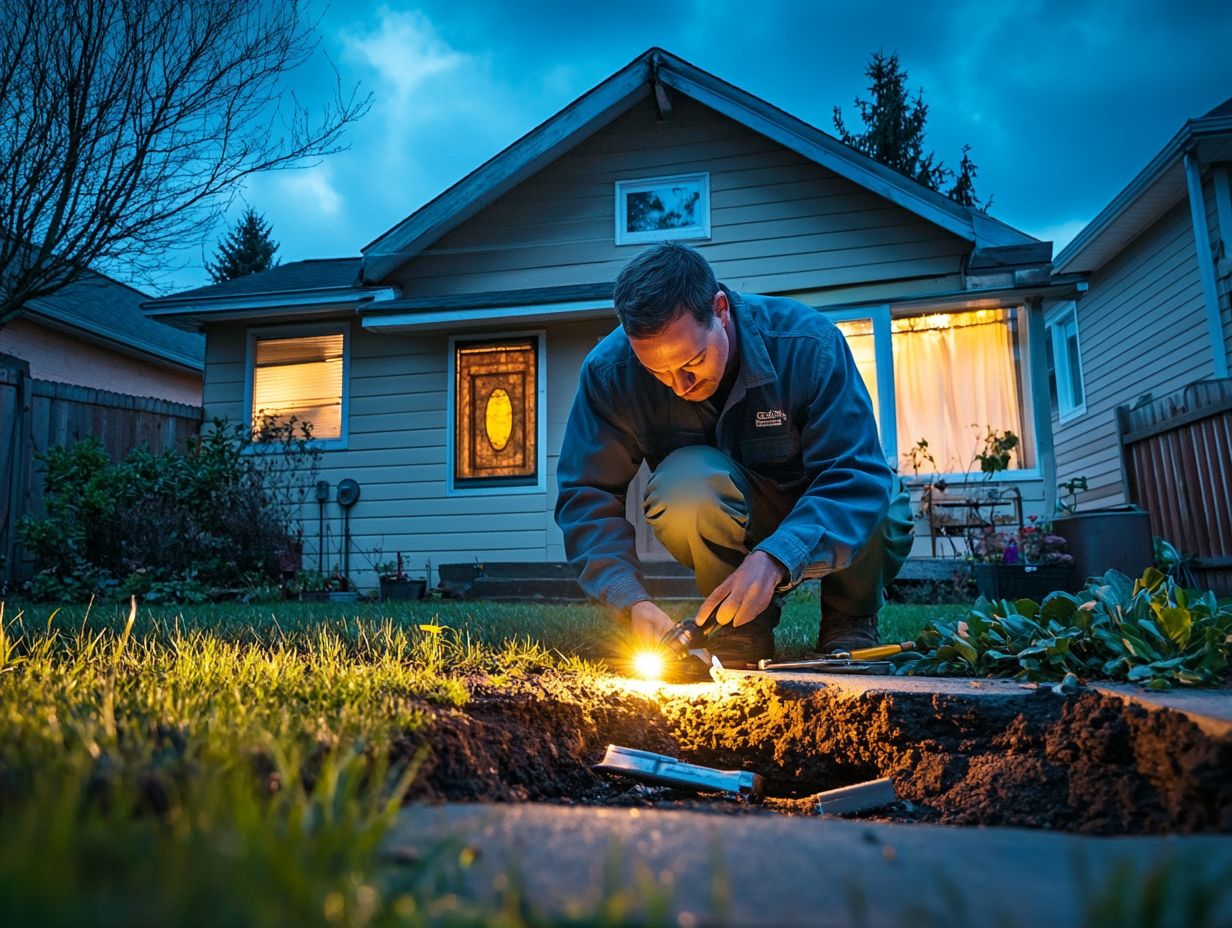
A home inspection can be a game-changer in your negotiation strategy during the home buying journey. The findings from this inspection provide you with leverage to request repairs or price adjustments based on the property’s condition and any issues uncovered.
By meticulously reviewing the inspection report, you can identify critical areas that may require attention, such as roofing, plumbing, or electrical systems. Whether you re dealing with outdated wiring or pesky water leaks, these details can substantially sway the negotiation process in your favor.
It’s essential to engage in discussions with clear communication, ensuring the seller fully understands the issues at hand. Seeking expert advice can be invaluable. It guides you on how to effectively present your requests and navigate any potential pushback, steering you toward a more favorable purchase agreement.
5. How Do I Choose a Qualified Home Inspector?
Choosing a qualified home inspector is essential for a comprehensive evaluation of your property. To ensure a reliable assessment, consider the inspector’s experience, qualifications, and their adherence to inspection guidelines. Following the 5 steps to a successful home inspection can also help in making an informed choice.
When selecting an inspector, seek certifications from reputable organizations such as the American Society of Home Inspectors (ASHI) and the National Association of Home Inspectors (NAHI). These credentials show their commitment to industry standards.
Prior experience is invaluable; an inspector with years in the field is far more likely to identify potential issues that a less seasoned inspector might overlook. Additionally, consider asking 5 questions before staging your home to ensure you’re well-prepared. Requesting sample reports can give you a glimpse into their thoroughness and attention to detail.
Taking the time to read customer reviews provides a clearer understanding of their professionalism and reliability. This ensures that your property is evaluated comprehensively before making such a significant investment.
What Should I Look for in a Home Inspection Report?
When you review a home inspection report, hone in on several key areas. Identify major concerns, minor issues, and recommendations for maintenance and repair. This focus can significantly impact your financial investment in the property.
Pay attention to the clarity of the findings. A well-structured report should present information in an easily digestible manner. Seek out helpful visuals such as photos or diagrams they make understanding problems much easier!
The thoroughness of the assessment is equally crucial; it ensures that no hidden issues slip through the cracks. Understanding the implications of these findings is essential, as they can greatly influence the property’s value and guide your future home maintenance decisions, potentially saving you from unexpected expenses in the long run.
What Are the Different Types of Home Inspections?
Home inspections cover various types designed to assess specific aspects of a property. From standard inspections to specialized assessments like termite evaluations and checks on systems such as septic setups and swimming pools, each plays a crucial role in ensuring the safety and value of your home.
For instance, pre-listing inspections allow sellers to spot potential issues before their property hits the market. This allows them to quickly address any necessary repairs and boost the home’s appeal.
Pest inspections focus on identifying wood-destroying organisms, essential for preserving the structural integrity of your home. Specialized system checks delve into critical components, such as HVAC systems and electrical wiring, aiding prospective buyers in understanding the overall condition of the home.
By thoroughly evaluating these various elements, inspections empower you to make informed decisions, ultimately enhancing your peace of mind and confidence in your investment.
What Are the Benefits of a Pre-Listing Home Inspection?
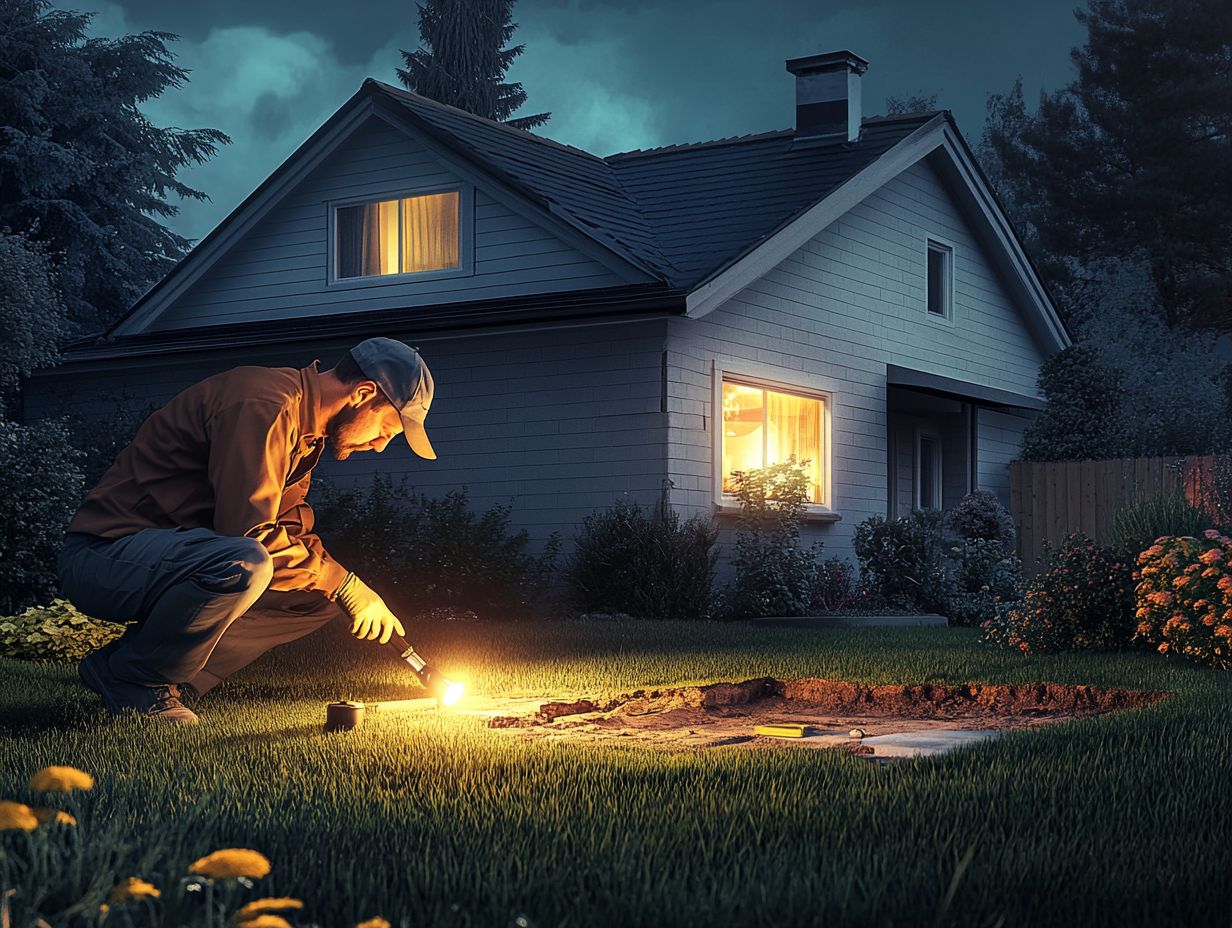
A pre-listing home inspection offers you a multitude of advantages as a seller. It gives you the chance to identify and resolve any property issues before your home hits the market, ultimately enhancing its value and appeal to potential buyers.
It also promotes transparency throughout the selling process. By taking the proactive step of addressing concerns uncovered during the inspection, you can significantly diminish negotiation points that might arise during discussions with buyers. This not only paves the way for a smoother transaction but also fosters trust with prospective buyers, who will appreciate the honesty reflected in a transparent inspection report.
Armed with a detailed inspection report, you can effectively market your property, showcasing its strengths while highlighting any repairs you’ve undertaken. This strategic approach can elevate your home’s marketability, attracting serious buyers who are willing to pay a premium for a well-maintained property.
What Are the Red Flags to Look for During a Home Inspection?
During a home inspection, you may encounter several red flags that signal potential issues that could put safety at risk and lead to hefty repair bills. It’s crucial to remain vigilant and informed about these concerns by following the essential checklist for home inspections.
For instance, structural damage, such as cracked foundations or sagging beams, could compromise the integrity of the home, requiring extensive and costly repairs. Water intrusion is another critical issue; it can foster mold growth and decay, jeopardizing indoor air quality and necessitating expensive remediation. Outdated electrical systems can create fire hazards and lead to inefficient energy use, creating dangerous situations in the future.
Spotting these warning signs helps you negotiate repairs or reconsider your purchase, ensuring that you prioritize your long-term safety and financial stability.
How Can a Home Inspection Affect the Buying or Selling Process?
A home inspection plays a pivotal role in the buying and selling processes, offering invaluable insights into the property’s condition that can spur negotiations on price or repairs. This, in turn, shapes the financial decisions of everyone involved.
For you as a prospective buyer, the findings from such an inspection can enhance your confidence, ensuring that you are making a well-informed investment. When significant issues are uncovered, you may find yourself given the power to request repairs or even reconsider your offers.
On the other hand, if you re selling, being strategic is essential. Understanding the potential implications of the inspection results will enable you to set realistic pricing strategies. Highlighted flaws may require price adjustments to keep buyers interested.
In this intricate dance of negotiation, expert advice becomes essential, equipping both buyers and sellers with the knowledge needed to navigate these complex interactions effectively.
What Are the Most Important Areas to Inspect in a Home?
When you conduct a home inspection, it’s essential to focus on key areas like plumbing systems, roof integrity, foundation stability, and electrical systems. Understanding the must-have qualities in a home inspector can ensure these components are vital to the overall safety and functionality of the property.
Plumbing systems, which are the network of pipes that carry water throughout the home, should be thoroughly evaluated to uncover leaks or corrosion that might lead to significant water damage, ultimately affecting both safety and property value.
Assessing the roof’s condition is equally crucial; missing shingles or signs of sagging could indicate potential leaks or structural issues that may worsen over time.
Don t overlook the foundation checking for cracks or settling is imperative, as these problems can jeopardize the entire structure.
Similarly, scrutinizing the electrical systems for outdated wiring or overloaded circuits is critical, as these pose serious fire hazards.
Keep an eye out for telltale signs like water stains, creaking noises, or flickering lights to visualize any potential issues. By prioritizing thorough inspections, you ensure peace of mind and protect your investment in the home.
Frequently Asked Questions
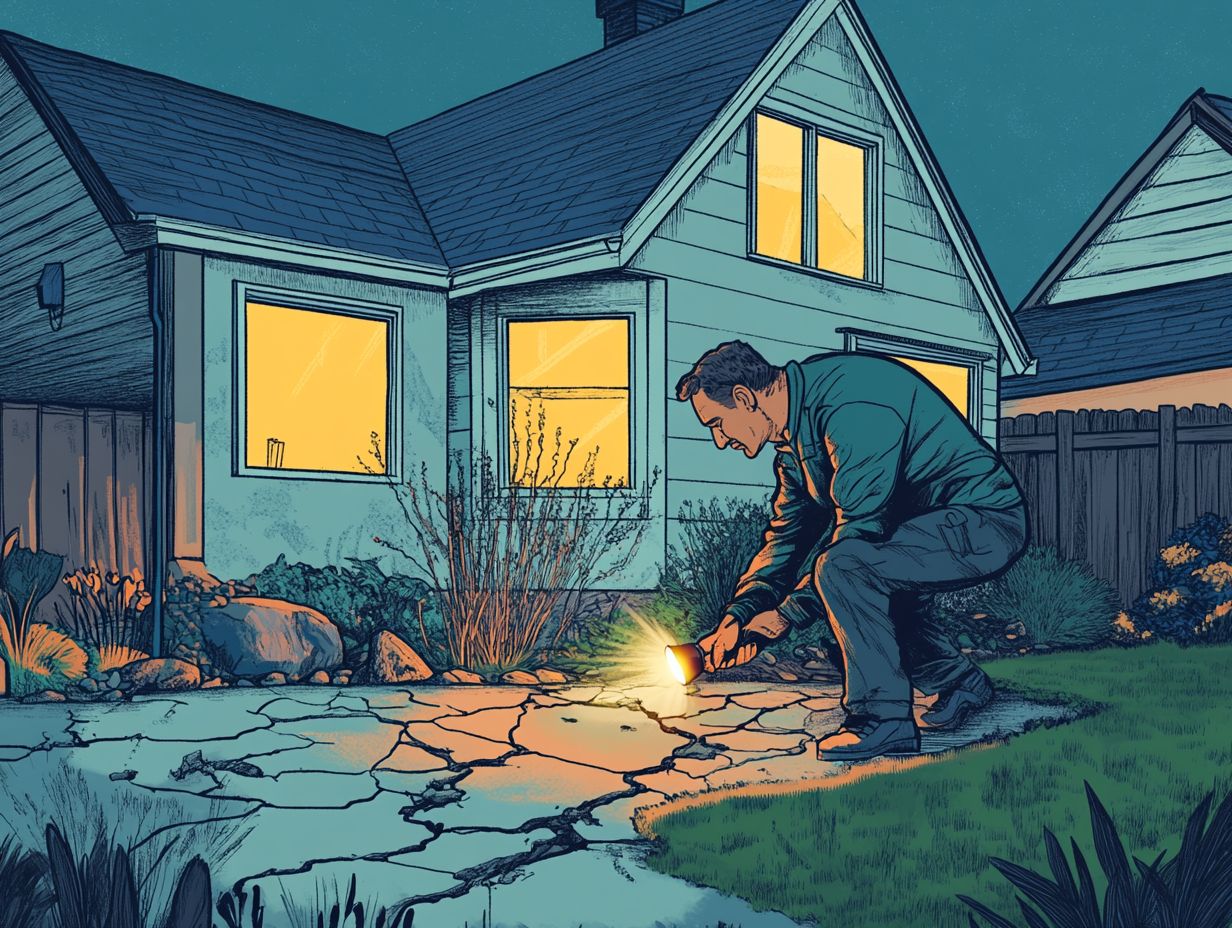
Ready to schedule your home inspection? Contact us today!
What are the 5 essential questions that home inspectors should ask during a home inspection?
The 5 essential questions for home inspectors are:
- What is the age and condition of the roof?
- What is the condition of the electrical system?
- Are there any signs of water damage or mold?
- What is the state of the plumbing system?
- Is there any evidence of structural issues?
Why is it important for home inspectors to ask these specific questions?
These questions cover the most critical areas of a home that can greatly impact its safety, functionality, and value, including the must-have qualifications for home inspectors.
By asking them, home inspectors can spot potential issues and, as outlined in the 5 things to know about home inspections, deliver accurate reports to their clients.
What are some common red flags that home inspectors should look out for?
Common red flags include:
- Cracks in the foundation
- Signs of water damage
- Outdated electrical systems
- Evidence of pests or insects
These signs could mean bigger problems lurk beneath the surface.
How can home inspectors ensure they are providing comprehensive reports for their clients?
Home inspectors should carefully look around the home, take detailed notes and photos, and use specialized tools like thermal imaging cameras, which help detect heat patterns that reveal hidden issues. Understanding the 5 key elements of a home inspection report is also crucial for a thorough evaluation.
Proper training and experience are crucial for identifying potential problems effectively.
What should home inspectors do if they uncover a major issue during the inspection?
If you find a major issue, tell your client right away! This could affect their safety and the home’s value.
Provide recommendations for further inspection or repairs and ensure your client understands the potential impacts of the issue.
How often should a home inspection be performed?
It is recommended to have a home inspection done at least once every 5-10 years or before purchasing a new home.
However, if significant changes or renovations have been made to the home, having an inspection done more frequently might be beneficial.

